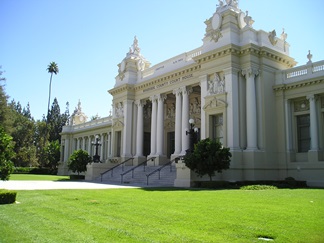Riverside Superior Court Judge Harold Hopp issued a preliminary injunction Nov. 9 against the certification of Riverside’s Nov. 2 election due to ballot Measure C, which, if approved, would transfer up to 11.5% of Riverside’s electric utility revenue to Riverside’s general fund. At last count, Nov. 5, 55% of voters voted yes on the measure.
Petitioners Riversiders Against Increased Taxes (RAIT) argued that the Nov. 2 election was a special election. The California Constitution requires tax initiatives to be held during general elections.
The city of Riverside argued that RAIT would not succeed on the merits of their case because the election was a planned general election, rendering a preliminary injunction inappropriate.
Case history
In 2018, the city passed a resolution that increased rates on electrical billing, with the intent to transfer revenue to the city’s general fund. The 2018 lawsuit Parada v. City of Riverside challenged the transfer on the grounds that it was a tax not ratified by the public.
The city and the Parada litigants settled the case May 19, with the agreement that the city would place the transfer of funds on the ballot of an upcoming election.
The city of Riverside said RAIT had no right to sue or file for a preliminary injunction since they were not a party in the Parada case.
“It is not appropriate for a third party to use a separate lawsuit to interfere with the contractual terms arrived at between the parties of a completely separate lawsuit,” the city’s response reads.
The Parada plaintiffs filed a brief against the motion for preliminary injunction, and urged Riverside to oppose the preliminary injunction on good faith.
“The City is considering not opposing this motion, but wants your thoughts on whether doing so would be in bad faith under the terms of the settlement agreement,” Ryan Dunn of Colantuono, Highsmith & Whatley wrote to Parada’s counsel Oct. 22.
“We believe the City has an obligation under the settlement agreement to oppose the motion in good faith and we demand that the City file such,” Eric Benink from Benink Slavens replied.
The correspondence was submitted as an exhibit in Parada’s brief.
RAIT’s case
Riverside City Council called for the election, calling it a special election on their agenda, at their Aug. 3 meeting.
Riverside’s notice for the election calls it a special municipal election, which RAIT used as evidence in their motion. The Riverside City Charter identifies general elections as being on June 8 and, starting in 2022, the same day as the statewide election, which RAIT also used as evidence.
RAIT argued that the city could be harmed through a mess of legal actions if the settlement to the Parada case was resolved with a ballot measure that could be found unconstitutional.
Riverside’s response
Riverside argued the Nov. 2 election was a general election, which typically would be held for runoffs for councilmember seats, and that RAIT was focusing on semantic titles over substantive constitutionality.
The city referenced Elections Code Section 1000 and 1301, which said general elections can be held on certain days, one of which was the first Tuesday after the first Monday in November, which Nov. 2 was.
“A regularly scheduled election is a general election—period,” their response reads.
The city cites County of Alameda v. Sweeney (1957), which stated that “a regular or general election is one which recurs at stated intervals as fixed by law; it is one which occurs at stated intervals without any superinducing cause other than the efflux of time.”
Riverside’s response cites city charter section 400(f), which states that the procedure governing general municipal elections applies to a special runoff election, which, for the 2021 election, was stated to occur Nov. 2.
“By setting the same procedure, the Charter makes a special election the same as a general election,” the city’s response reads.
There was not a runoff election on the Nov. 2 ballot.
Riverside’s counsel also cited, as similar to their case, Silicon Valley Taxpayers Association v. Garner (2013), in which a court found a sales tax measure on a ballot constitutional even though the planned runoff election for Santa Clara supervisors did not occur on the ballot. That election was also the 2012 statewide general election.
The city proposed that under RAIT’s logic, the city could call its June councilmember election “primary” and its November runoff election “citywide” to avoid ever placing tax measures on its ballots.
Further, the city argues that the petitioner’s position runs counter to Proposition 218’s intent to allow residents to vote on taxes.
The city argued that the injunction would violate the separation of powers and the body’s statutory requirement to declare a winner of the election, violating Section 526 of the Code of Civil Procedure which states that an injunction cannot be granted to prevent the execution of a public statute by officers of the law for a public benefit.
Parties
RAIT filed their case Sept. 9, two months before the election was held.
Chad Morgan of the Law Office of Chad Morgan represents RAIT. Phaedra Norton, city attorney; Susan Wilson, assistant city attorney; and Neil Okazaki, assistant city attorney, represent the city of Riverside, City Clerk Donesia Gause and Riverside County Registrar of Voters Rebecca Spencer.
Riverside Superior Judge Harold Hopp presides.
Case no: CVRI2104120
Read the motion for summary judgment here.
Read Riverside’s response here.








